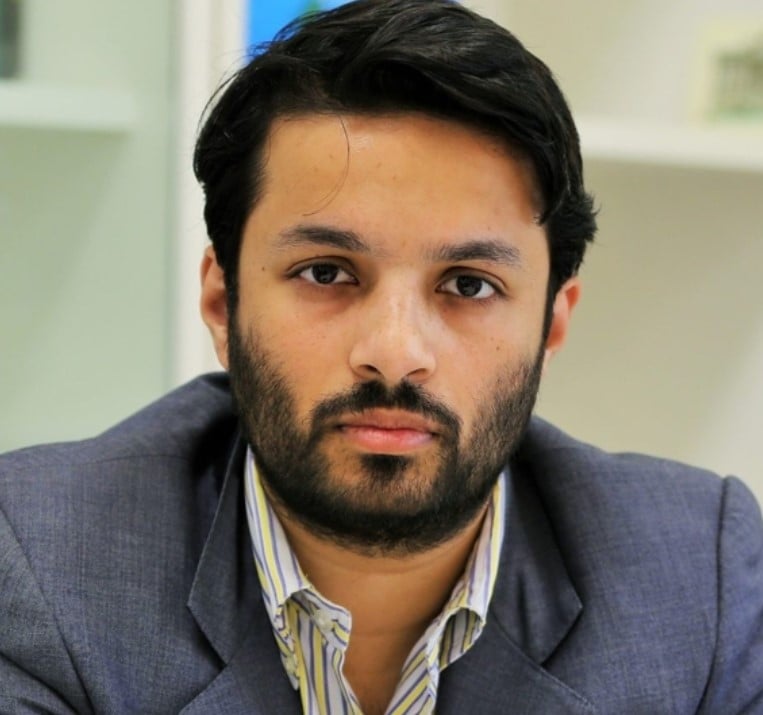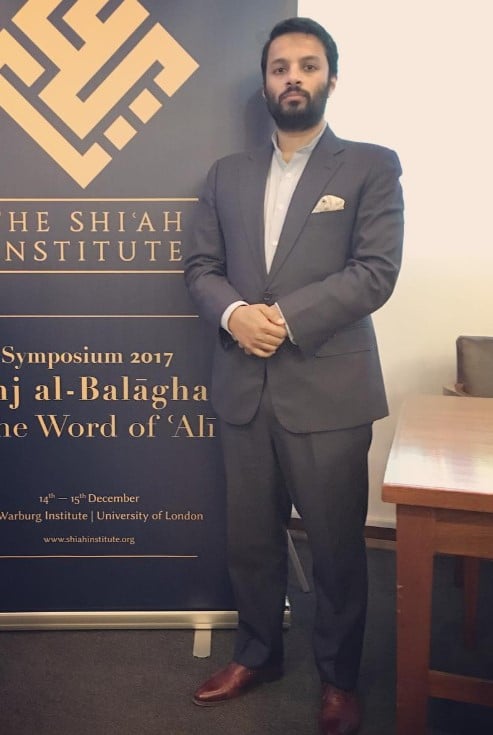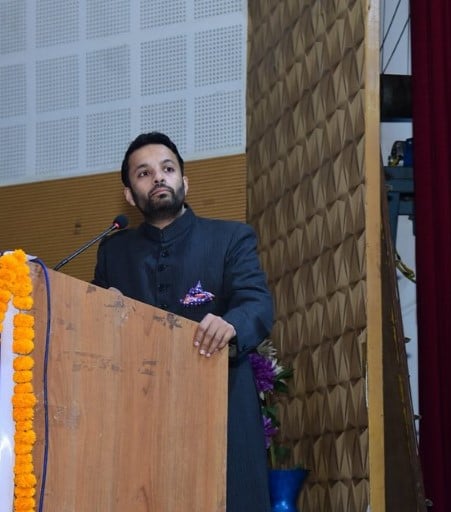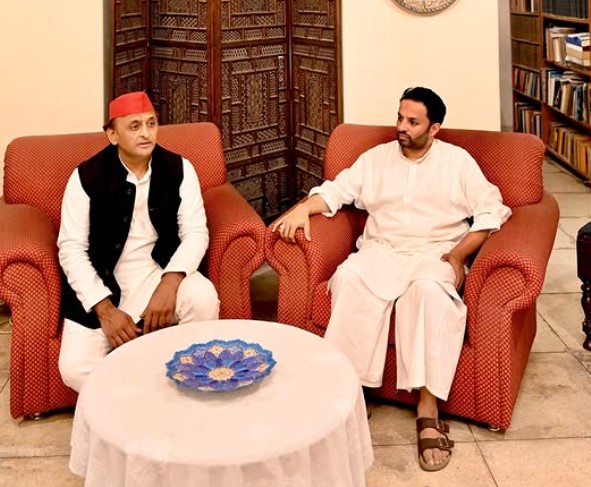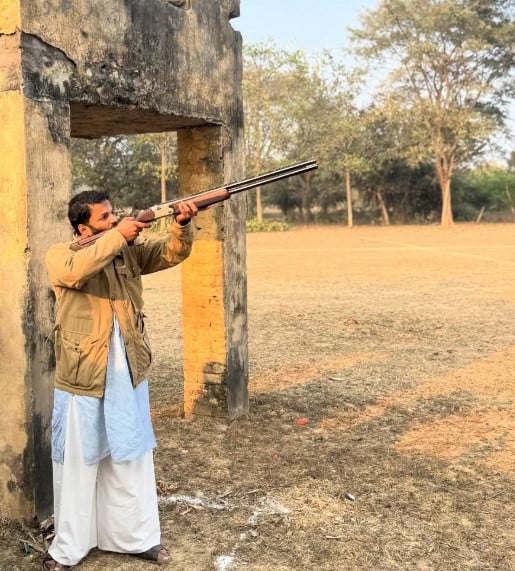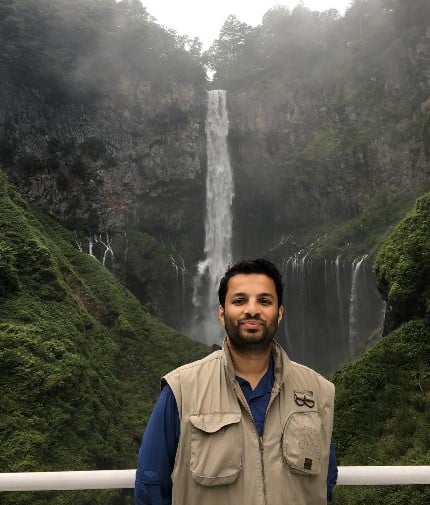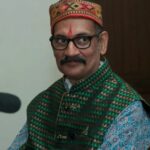Ali Khan Mahmudabad Height, Age, Wife, Family, Biography
| Bio/Wiki | |
|---|---|
| Profession(s) | • Academician • Historian • Poet • Columnist |
| Physical Stats | |
| Height (approx.) | 5' 7" (170 cm) |
| Eye Colour | Black |
| Hair Colour | Black |
| Career | |
| Political Party | Samajwadi Party (2017-present)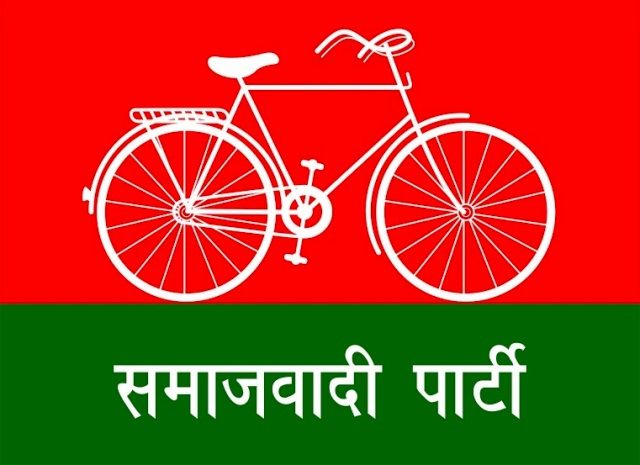 |
| Personal Life | |
| Date of Birth | 2 December 1982 (Thursday) |
| Age (as of 2024) | 41 Years |
| Birthplace | Mahmudabad, Lucknow, Uttar Pradesh |
| Zodiac sign | Sagittarius |
| Nationality | Indian |
| Hometown | Lucknow, Uttar Pradesh |
| School | • La Martiniere College, Lucknow (upto 5th grade) • King's College School, London, England (till 1996) • Winchester College, Winchester, England (1996-2001) |
| College/University | • Amherst College, Amherst, Massachusetts • University of Damascus, Syria • Cambridge University, England, UK |
| Educational Qualification(s) | • Bachelor of Arts with a double major in History and Political Science from Amherst College, Amherst, Massachusetts (2002-2006) • Diploma in Arabic Language and Literature from the University of Damascus, Syria (2008-2009) • M.Phil. in Historical Studies from Girton College, Cambridge University (2009-2010) • Ph.D. in History from Cambridge University, England (2010-2014) |
| Religion | Islam |
| Food Habit | Non-vegetarian |
| Controversy | Arrested Over Social Media Posts on Operation Sindoor and War Commentary On 18 May 2025, Ali Khan Mahmudabad was arrested in Delhi over two social media posts where he questioned the praise for army officer Sophia Qureshi and warned against celebrating war. This led to complaints by a women's commission head and a BJP youth leader. He defended his comments as peaceful and supportive of the army. He said that they were misunderstood and used to silence him. [1]NDTV |
| Social Media | • Instagram |
| Relationships & More | |
| Marital Status | Married |
| Family | |
| Wife/Spouse | Onaiza Drabu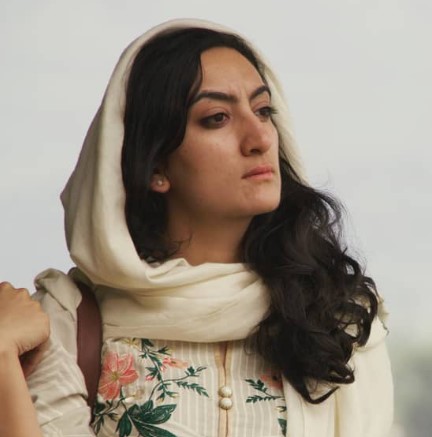 |
| Parents | Father- Mohammad Amir Mohammad Khan (Suleiman/Raja of Mahmudabad) (died 2023)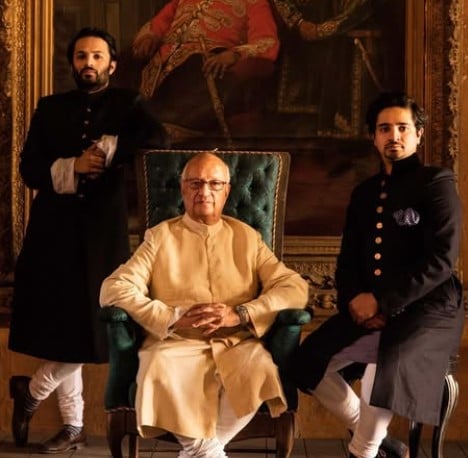 Mother- Rani Vijay |
| Siblings | Brother- Amir Khan Mahmudabad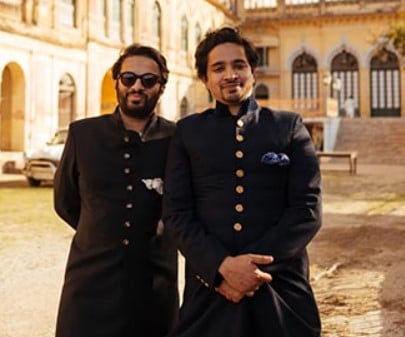 |
| Other Relatives | Paternal Grandfather- Mohammad Amir Ahmad Khan (last ruler of Mahmudabad)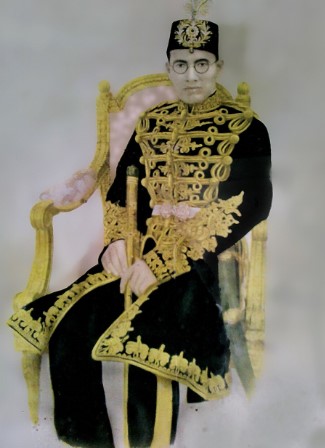 Father-in-law- Haseeb Drabu (politician, economist) 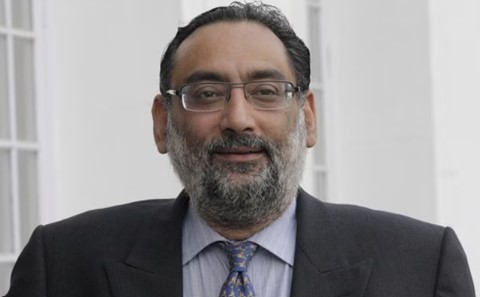 |
Some Lesser Known Facts About Ali Khan Mahmudabad
-
His grandfather, Mohammad Amir Ahmad Khan, was the last ruler (Raja) of Mahmudabad, a town in Uttar Pradesh. He was also the treasurer and main supporter of the Muslim League before India’s partition.
-
His father, Sulaiman, Raja of Mahmudabad, fought a 40-year court case while trying to get back family property taken under the Enemy Properties Act.
-
His mother was born a Hindu, She is the daughter of Jagat Singh Mehta, who worked as an Indian civil servant, diplomat, teacher, and writer. She is also the sister of Vikram Mehta, who was the CEO of Shell India.
-
Ali Khan Mahmudabad grew up in Mahmudabad, Uttar Pradesh, India.
-
During his Ph.D. in History at Cambridge University, his research was titled ‘Rhetorics and Spaces of Belonging among North Indian Muslims, 1850–1950.’ His supervisors were Professor Sir Christopher Bayly and Professor Javed Majeed.
- His Ph.D. focused on how Muslim political identity developed in North India between 1850 and 1950.
- Ali Khan Mahmudabad also studied how poetry gatherings (Mushairas) and the idea of homeland (watan) changed during that time.
- His Ph.D. thesis also studied topics like citizenship, patriotism, and global Muslim identities.
- These ideas helped in explaining the thoughts of Muslims about their identity and sense of self.
- His studies focused on South Asia, but these topics later became important in many Muslim communities around the world. They also became a part of larger discussions about political change and public policy.
- At Amherst College, he played on the Varsity Squash Team.
-
Ali Khan Mahmudabad wrote his college thesis on the topic ‘Iran and the Evolution of Velayat-e-Faqih Islamic Jurisprudence.’
- Before pursuing his Ph.D., he completed an M.Phil. at Cambridge, and his MPhil thesis was about Shi‘a Muslim networks between South Asia and the Middle East in the early 1900s.
-
After its completion, the research was published in the Journal of the Royal Asiatic Society and became part of a book called The Shi‘a in Modern South Asia.
-
Before studying at Cambridge, Ali learned Arabic at the University of Damascus in Syria.
-
During his classes at the university, he started writing many articles about Syria for newspapers and magazines. He travelled a lot within Syria and to other countries in the region.
-
Later, Ali Khan Mahmudabad did more research and travelled more in the Middle East. He spent a lot of time in countries like Iran and Iraq.
-
His travels and research work helped him to write for noted publications such as National Geographic magazine.
-
He writes under the pen name Ali Khan Mahmudabad.
-
Ali Khan Mahmudabad has a regular column in Urdu for The Inquilab, an Indian newspaper.
-
He writes for many other Indian newspapers and magazines such as Caravan Magazine, The Indian Express, The Times of India, Outlook Magazine, Hindustan Times, Business Standard, Daily News and Analysis (DNA), Tehelka Magazine, and The Sunday Guardian.
-
He also writes for some international publications such as The Guardian, The Straits Times, Huffington Post, and OpenDemocracy.
-
His writings cover political, social, economic, and security topics, mainly in South Asia and the Middle East.
-
Ali Khan Mahmudabad often delivers lectures at schools, colleges, and universities.
-
He advises policymakers on topics like politics, religion, and security in South Asia and the Middle East (West Asia).
-
In 2010, he received the Evan Carroll Commager Fellowship from Amherst College.
-
Ali Khan Mahmudabad speaks several languages fluently, such as English, Hindi, Urdu, Awadhi, Arabic, Persian, and French.
- In January 2015, he began working as a Strategic Advisor on South Asian and Middle Eastern Geopolitics.
- After that, he joined Ashoka University in Haryana as an Associate Professor.
-
In 2017, Ali Khan Mahmudabad joined the Samajwadi Party as its member and spokesperson.
-
He is also a columnist for the Urdu newspaper Sahāfat and the Urdu magazine Aalami Samay.
-
He has contributed chapters to several books, such as A Leaf Turns Yellow: the Sufis of Awadh – chapter titled “Reliving a Sacrifice,” Lucknow: A City Between Cultures – chapter titled “Lucknow: A Binding Legacy,” The Shi‘a in Modern South Asia – chapter titled “Local Nodes of a Trans-national Network: A Case Study of a Shi‘i Family in Awadh (1900–1950),” and Poetry of Belonging: Muslim Imaginings of India (1850–1950).
- On 8 May 2025, Ali Khan Mahmudabad made two social media posts that became controversial.
-
After that, an FIR (police complaint) was filed by Renu Bhatia, Chairperson of the Haryana State Women’s Commission.
-
Another FIR was also filed on 17 May 2025 by Yogesh Jathedi, Jathedi village head and BJP Yuva Morcha general secretary, with similar charges.
-
On 18 May 2025, Ali Khan Mahmudabad was arrested in Delhi because of a social media post he made about Operation Sindoor, in which the Indian military hit terror camps in Pakistan and Pakistan-occupied Kashmir (PoK) on 7 May 2025, two weeks after 26 civilians were killed in Pahalgam.
-
The operation was explained to the public and media by Wing Commander Vyomika Singh, Colonel Sophia Qureshi, and Foreign Secretary Vikram Misri.
-
In the first post, he pointed out the right-wing commentators praising Colonel Sophia Qureshi. He said that while it was good to see two women soldiers sharing the updates with the public, this kind of representation should lead to real change, or else it was just hypocrisy. The post read,
I am very happy to see so many right wing commentators applauding Colonel Sofiya Qureshi but perhaps they could also equally loudly demand that the victims of mob lynchings, arbitrary bulldozing and others who are victims of the BJP’s hate mongering be protected as Indian citizens. The optics of two women soldiers presenting their findings is important, but optics must translate to reality on the ground, otherwise it’s just hypocrisy.”
- In the second post, Ali Khan Mahmudabad criticised the “blind bloodlust for war” and expressed concern about the human cost of armed conflict.
- After the arrest, he defended his comments and said that he was using his right to free speech to promote peace and harmony.
-
He said that in his post, he appreciated the Indian armed forces for their strong action and claimed that the women’s commission misread and misunderstood his social media posts and took them out of context.
-
Ali Khan Mahmudabad called the case a new form of censorship and harassment, and said that the people were creating issues where there were none.
- Practising shooting is his favourite recreational activity.
- Ali Khan Mahmudabad likes travelling to distant places in his free time.
References/Sources:

